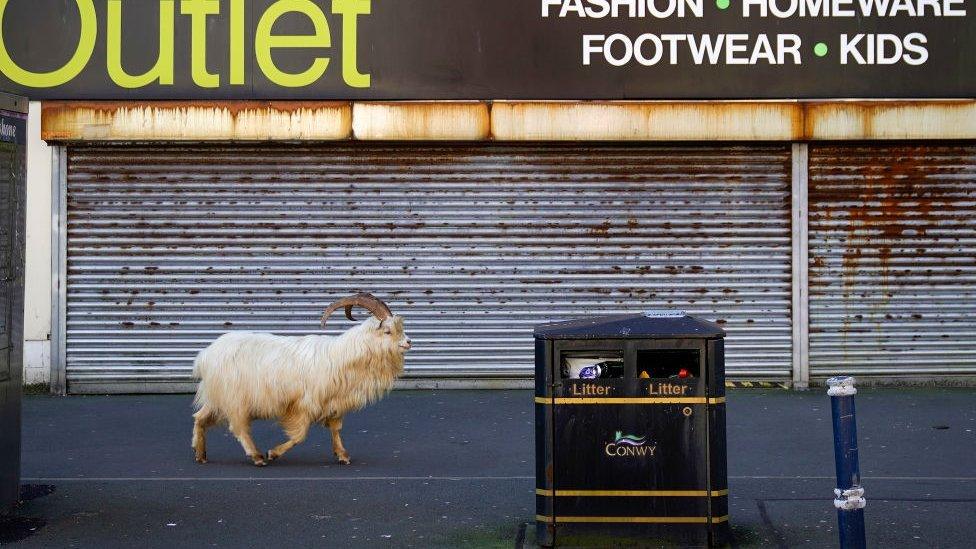Coronavirus: Social distancing 'difficult' for vets and animal workers
- Published
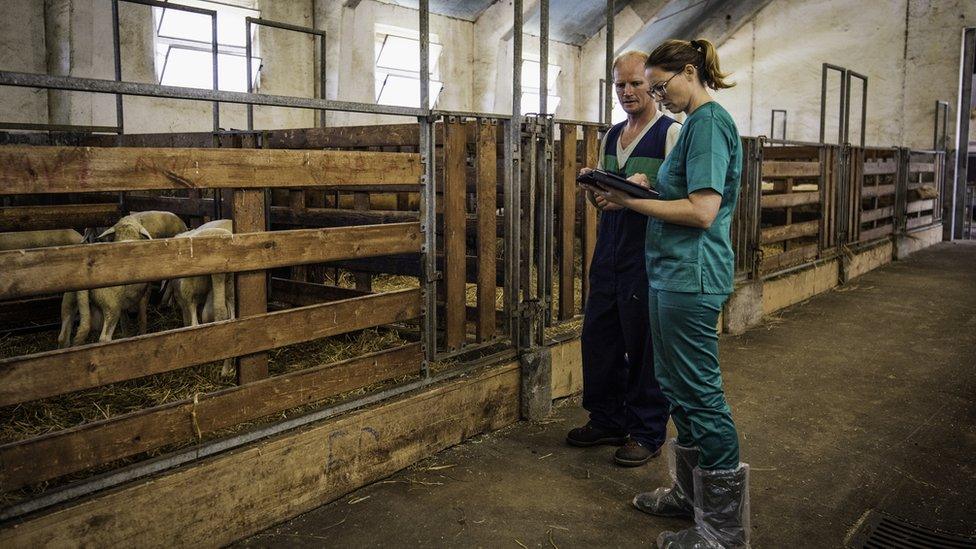
Whether by using ropes or facing away from each other during procedures, rural vets are taking extraordinary steps to maintain social distancing.
Farm vets and food chain workers are classed as key workers in the coronavirus crisis, the British Veterinary Association has said.
But vets say maintaining a two-metre distance can be difficult for some tasks - especially with larger animals.
And other animal care workers are also struggling with the new restrictions.
Nichola Rolinson, of Derw Veterinary Surgeons, in Builth Wells, Powys, said: "I need the farmer to restrain a sheep, cow or horse during emergency procedures like caesarians.
"All we can do is try to face away from each other, not make contact and wear masks. But we have to look after our physical safety when handling large animals.
"Using ropes and sandbags could be useful ways to restrain animals, especially smaller ones like sheep, and maintain social distancing."

What is the guidance for rural vets?
The British Veterinary Association has issued the following advice for dealing with farm animals during the crisis, although it says action is open to clinical veterinary judgement:
Maintain a physical distance of 2m at all times (a cow's length!)
In cases where clients are self-isolating or confirmed to have Covid-19, a second member of practice staff should attend to ensure your health and safety.*
Contact with the client should be by telephone only
Cleanse all surfaces in your car on leaving the farm
Do not enter the farmhouse for any reason
Follow the most up to date government advice regarding statutory surveillance and bovine TB testing from APHA covering Great Britain and DAERA in Northern Ireland

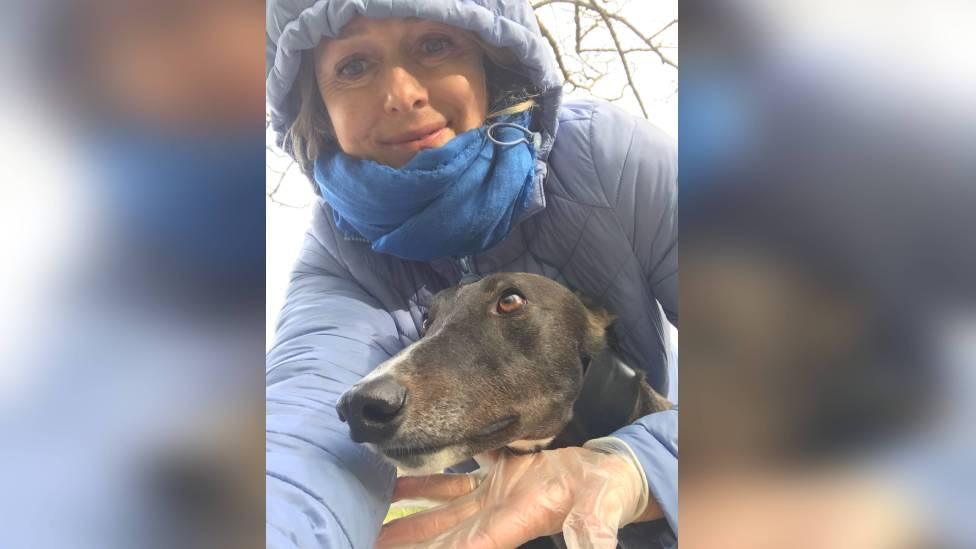
Sarah Smout, of Quay Canine Dog Walking Services, has put her home boarding service on hold
Rescue centres and dog walkers have also had to adapt their working practices and are taking a big financial hit as customers stay away during the current lockdown.
Sarah Smout, a dogwalker from Quay Canine Dog Walking Services in Pentraeth, Anglesey, said she was only operating for five customers, who are all key workers in the NHS.
"I usually also do home boarding until recently, but not now," she said.
"If the owners are out all day, I run a pop-in service and walking service. I wear protective equipment and I carry hand sanitiser with me and anti-bacterial spray.
"The dogs stay outside and I go to the gate to collect them. I bring my own leads and only go on walks once a day, usually in my own grounds."
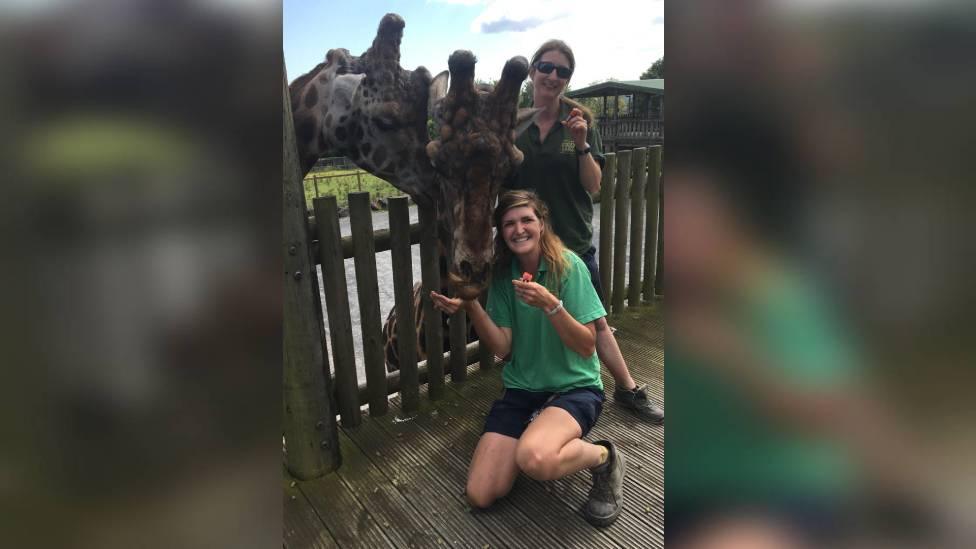
Staff are working hard to look after the animals at Folly Farm
Meanwhile, Zoe Wright, from Folly Farm in Pembrokeshire, said the animal wardens were still on site, working hard to look after the resident creatures, ranging from meerkats to giraffes.
"Our workers have been amazing. The animals still need looking after, so they're doing their jobs while maintaining social distancing," she said.
"They've been recording home-schooling videos with the animals for our social media channels - there's one with the meerkats and another with a camel."
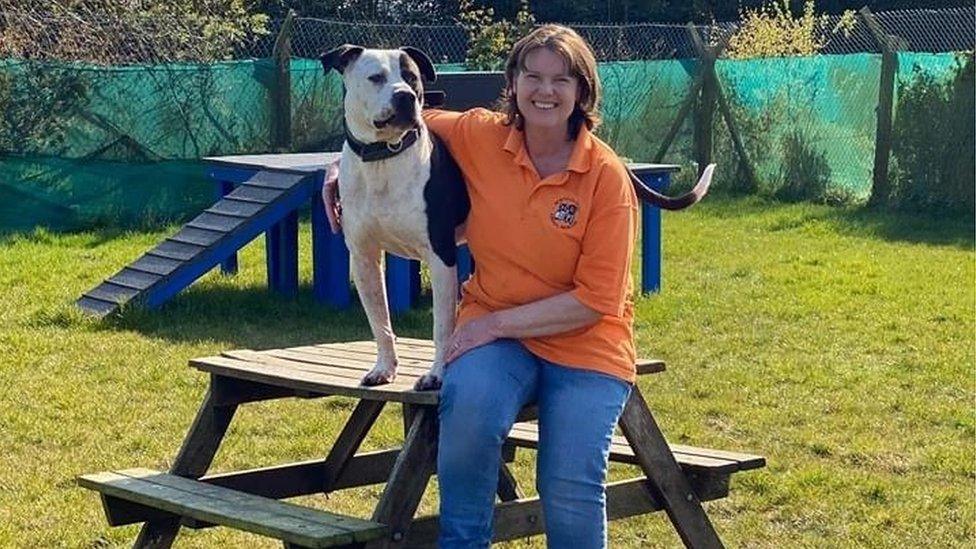
North Clwyd Animal Rescue cares for 1,800 domestic pets a year
The current lockdown means some smaller animal charities could even be facing closure as their revenues continue to dry up.
Nicky Owen, from North Clwyd Animal Rescue, in Holywell, Flintshire, said: "It's a very scary time, not knowing what to do next.
"We can't shut the doors completely because we've got the animals here to look after. But we've got no income coming in because our charity shops are all shut and we can't do adoptions.
"We've got bills and wages to be paid. But the animals are our main priority.
"We've got a lot of supporters to help us along the way, but it depends how long this is going to last. If it's for a few months it's going to be hard."
- Published2 April 2020
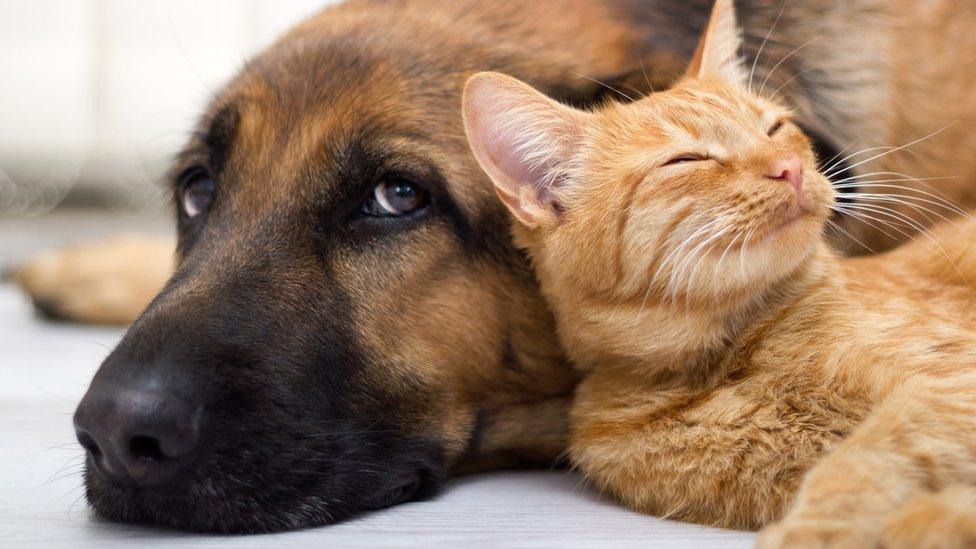
- Published31 March 2020
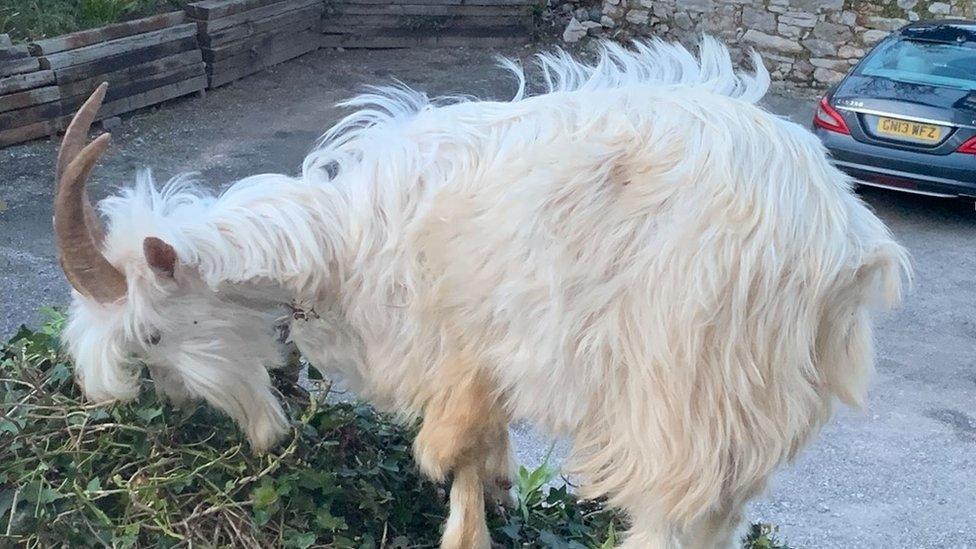
- Published31 January 2020
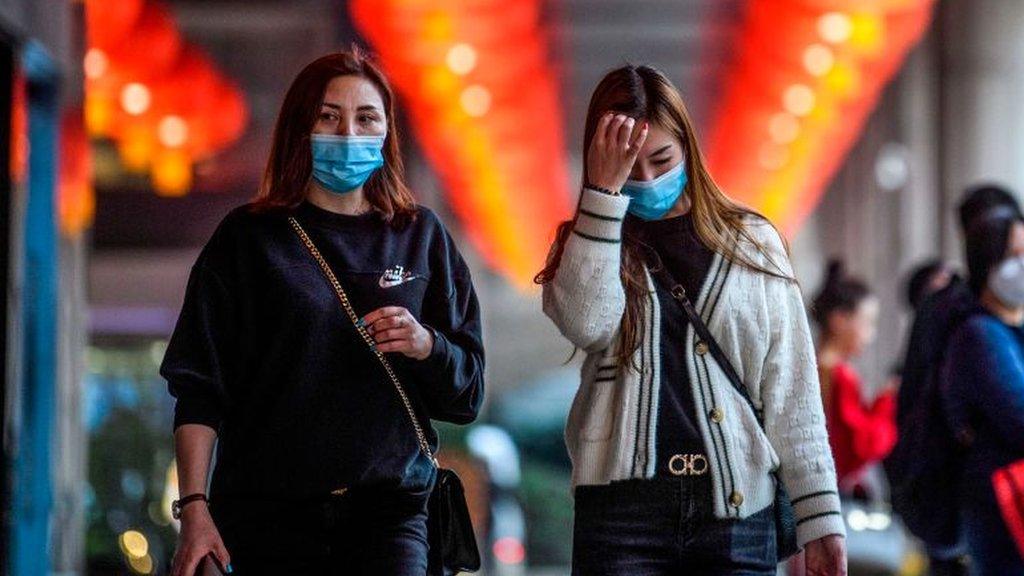
- Published3 April 2020
